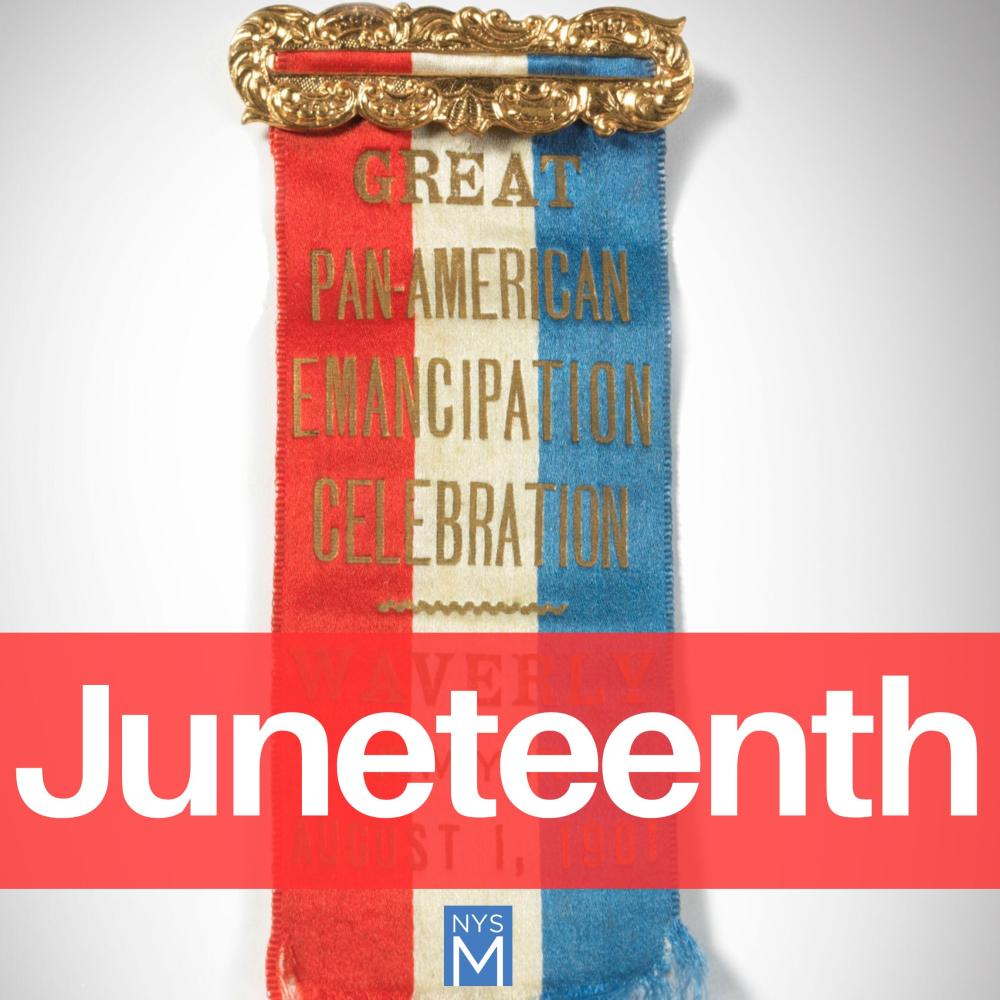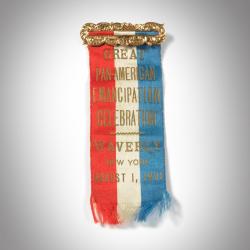
Celebrating Juneteenth in New York
The New York State Museum will be closed on Thursday, June 19, 2025, in recognition of the Juneteenth federal holiday. The museum will return to normal hours of operation on Friday, June 20.
Although slavery in New York State was abolished on July 4, 1827, the institution of slavery in the United States persisted for decades. President Abraham Lincoln issued the Emancipation Proclamation on January 1, 1863, declaring freedom for enslaved people in the Confederate states. However, emancipation was not immediate or universally enforced. On June 19, 1865, more than two years later and two months after the end of the Civil War, enslaved African Americans in Galveston, Texas, were finally informed of their freedom. This delay underscores how uneven and contested emancipation was—and how, even after a national declaration, many were forced to wait for the promise of freedom to become a lived reality.
Juneteenth, also known as Black Independence Day, Juneteenth Independence Day, and Emancipation Day, was first celebrated by African Americans across the Southern United States in 1866. Today, it is celebrated across the nation, often with parades, live music, performers, and speakers with the goal to educate, empower, and entertain celebrants. On June 17, 2020, Juneteenth was declared an official New York State holiday.
The Great Pan-American Emancipation Celebration
This medal with ribbon from the NYSM History Collection commemorates the Great Pan-American Emancipation Celebration, held in Buffalo, New York, between May and October 1901. Prior to emancipation, many Black New Yorkers observed Independence Day on July 5 to protest the injustice of celebrating freedom while slavery still existed in parts of the country. Additionally, August 1 also became a powerful day of remembrance and celebration. It marked the abolition of slavery in the British Empire in 1834 and was embraced by many New Yorkers as a time to also commemorate the end of slavery in New York State in 1827 and nationwide in 1865.
Although the connection to Waverly, New York, at the Exposition remains unclear, newspapers report that the African American community in Waverly continued to hold emancipation celebrations well into the 20th century with an annual summer picnic.
Black History Resources from the NYSM, NYS Library, and NYS Archives
This resource page features powerful objects from our collections, educational tools, exhibitions, videos, and more—essential materials that deepen understanding of the past, honor the stories of Black New Yorkers, and support meaningful learning for all ages.




